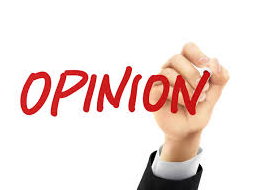
Health insurance companies have been shielding many customers from out-of-pocket “cost-sharing” expenses like deductibles, coinsurance, and copayments for Covid-related medical care. But that safety cushion is disappearing, increasing your direct financial risk from the disease.
Now that vaccines have proven safe and effective at mitigating Covid, insurers are shifting costs back onto customers, including large insurers here in Kansas like Blue Cross Blue Shield of Kansas and Blue KC.
Testing and vaccines will continue to have no out-of-pocket costs under federal law, but other services will trigger customer cost-sharing.

For those who remain unvaccinated, that means a heightened risk of large medical bills, on top of their heightened risk of contracting Covid and suffering its more severe health effects.
The group most directly impacted is the nearly 60 percent of Kansans who, per the Kansas Health Institute (KHI), get their health insurance through an employer. Should these folks incur costs for Covid-related care, cost-sharing under their respective plans kicks in.
The Kaiser Family Foundation reports that in Kansas the average annual family deductible is about $3,600 and the average individual deductible is about $1,900. Annual out-of-pocket maximums for covered services for families can currently exceed $17,000 under federal law.
Going forward, then, an insured person who needs Covid treatment could face thousands of dollars in out-of-pocket costs that they didn’t risk before in the pandemic.
Roughly 250,000 Kansans lack health insurance, according to the KHI. These Kansans are disproportionately low income workers. They are also more likely to live in rural communities that have lower vaccination rates and that Covid has hit harder on a per capita basis. Not having benefited from cost-sharing waivers because they lacked insurance, not much changes for these folks and their risk for large medical debt.
If four-figure medical bills don’t intimidate you financially, congratulations on your comfort.
But for many Kansans, that kind of expense risks financial ruin and entrapment as a defendant in the legal system. Economic surveys commonly estimate that the median American has under $4,000 in cash savings, while the Federal Reserve reported in 2019 that about 40 percent of Americans would struggle to cover a $400 emergency expense.
Many readers probably know people—often the uninsured or the under-insured—who have asked for charity on GoFundMe to cover their medical bills. That is a sad reality of the modern American health care market, especially for the working class.
These crowdfunding attempts typically fall far short, though. The Journal of the American Medical Association published a study in early 2021 reporting that the roughly 250,000 medical expense fundraisers on GoFundMe in the previous decade raised just 36% of their total goal.
If neighborly goodwill can’t cover medical expenses for cancer patients when economic times are good, how can we expect it to cover the ballooning costs of Covid care in tougher economic times and when this disease has seemingly driven so many Americans to loathe each other and wish each other harm?
Most Kansans probably aren’t enthusiastic to blow thousands of dollars on Covid care. Nor would they proudly tout that bill in some grand display of conservative virtue signaling. There is no shame in getting vaccinated just to lower your financial risks. But for those who choose to remain unvaccinated, hopefully they know the heightened financial peril they are embracing.
Patrick R. Miller is an Associate Professor of Political Science at the University of Kansas.






